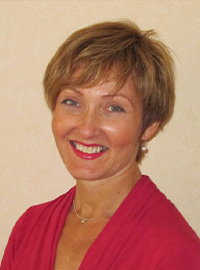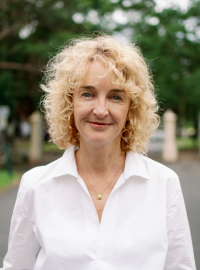Master of Teaching (Early Childhood and Primary)
Course information for - 2025 entry
- Duration
- 2 years full-time or equivalent part-time
- Fees (first year)*
- Start dates
- Applications open in August for ACU Term 1, ACU Term 3
ACU is currently offering Commonwealth supported places (CSP) for this course. In a CSP, the Australian Government subsidises the cost of your course. You’ll pay the remainder, known as the student contribution amount.
This course is also available on campus.
Overview

The Master of Teaching (Early Childhood and Primary) is a graduate-entry, pre-service teacher education course for those who want to qualify as both an early childhood and primary school teacher. This course cultivates graduates who are passionate about, and committed to, the generation and dissemination of knowledge, skills and attitudes that facilitate high-quality learning in a child’s early years. Delivered fully online, this course is made up of a series of online units and block day placements in early childhood and primary school settings.
An exceptional benefit to this course is you will be able to build on your undergraduate studies and graduate with a teaching specialisation area within the primary curriculum.
Achieve your goals with a scholarship.
A generous Commonwealth Teaching Scholarship is available to support new undergraduate and postgraduate students enrolling in an initial teacher education (ITE) program to help meet the costs of their study. Learn more about eligibility and how to apply here.

Professional experience
Pre-service teachers must complete professional experience placements in a relevant prior-to-school and formal primary school settings in line with the requirements of state/territory teacher accreditation authorities. During this time you'll be required to be available on a full-time basis.
Professional recognition
Graduates are eligible for registration as an early childhood or primary school teacher in government, independent, Catholic schools or other faith-based schools.
Accreditation
This program has been accredited by the Victorian Institute of Teaching and listed on the Australian Institute for Teaching and School Leadership (AITSL) and Australian Children's Education and Care Quality Authority (ACECQA) accredited programs list.

Careers
Our graduates have pursued careers in:
- early childhood education
- primary school education
- religious education
- education research
- play education
- curriculum development
- education consulting
- policymaking
Course details
Course structure
To complete the Master of Teaching (Early Childhood and Primary), a student must complete 160 credit points (cp).
Course map
Graduate statement
AQF framework
Exit Points
A student who has successfully completed the following requirements may exit from the course with that qualification. Note that none of these qualifications qualifies a student to teach in Australia.
Graduate Certificate in Educational Studies: 40 cp from the Schedule of Unit Offerings
Graduate Diploma in Educational Studies: 80 cp from the Schedule of Unit Offerings
A student who does not meet the LANTITE requirements may exit with the Graduate Diploma in Educational Studies or Graduate Certificate in Educational Studies if they meet the requirements of those awards.
Additional course information
Non-academic assessment - suitability for teaching
Applicants who apply for entry into this initial teacher education course will be required to complete a non-academic assessment. The assessment is to demonstrate suitability for teaching and will be part of your application when applying for admission into this course. Please visit our Suitability for teaching page for more information.
Literacy and Numeracy Test in Initial Teacher Education (LANTITE)
Students will be required to demonstrate they have achieved approved benchmarks in literacy and numeracy as demonstrated through the Literacy and Numeracy Test in Initial Teacher Education (LANTITE). Successful completion of LANTITE is a requirement for course completion.
If you have started your ITE course at another institution and wish to transfer to ACU to complete your studies, please be sure that you have read and understand the requirements for receiving credit for previous studies and those on completing LANTITE.
All students enrolled must have the appropriate approvals before they may enter a classroom.
These are: Blue Card (Qld), Working with Vulnerable People (ACT) or Working with Children Check (NSW and Vic).
International students must provide a police check from their home country. All students who have lived in another country for twelve months or more must provide a police check from that country for that period.
Entry requirements
An applicant must also comply with the Admission to Coursework Programs Policy.
To be eligible for admission to the course, an applicant must:
- have successfully completed a Bachelor degree or equivalent qualification, with:
- subject content studies equivalent to one year of full-time study in one or more learning areas of the primary school curriculum; including
- subject content studies equivalent to one quarter of a year in a selected subject specialisation.
- demonstrate suitability for teaching as evidenced by completion of the relevant State assessment which will be provided in the application process.
Applicants who completed Bachelor degrees outside Australia should review the Admission to Coursework Programs Policy to determine if they are required to meet additional English Language Proficiency requirements for entry into the course.
Applicants seeking teacher registration in Australia should check with state registration bodies to confirm English Language Proficiency requirements for teacher registration.
Disclaimer: The course entry requirements above are for 2025 Admission.
Applicants with higher education study
You will need to meet the minimum entry requirements and subject prerequisites for your chosen course.
If you have completed at least two units of AQF-recognised study at bachelor level or above, we’ll assign you with a new selection rank that reflects your study level, duration, and grade point average.
If your prior study or relevant work experience has provided you with knowledge, skills or experience aligned with the learning outcomes of units in your new course, you may be eligible to gain credit for study or have your prior learning recognised. This means you may be able to complete your ACU course in a shorter timeframe.
You can use our credit search tool to see what you might be eligible for. For more information about credit and recognition of prior learning at ACU, follow the link below.
Applicants with work and life experience
You’ll need to meet the minimum entry requirements for your chosen course.
English language requirements
International English Language Testing System (IELTS)
- No score less than 7 in reading and writing. No score less than 8 in listening and speaking.
Pearson Test of English (PTE)
- A minimum of 65 in reading and writing and a minimum of 79 in listening and speaking
Test of English as a Foreign Language – Academic (TOEFL)
- No score less than 24 in reading, 27 in writing, 28 in listening and 26 in speaking
ACU English Language Test
- A++ (85 or above)
C1 Advanced
- A minimum of 185 in reading and writing and 200 in listening and speaking.
Inherent requirement
There are essential components of a course or unit that demonstrate the capabilities, knowledge and skills to achieve the core learning outcomes of that course or unit. You will need to be able to meet these inherent requirements to complete your course.
Learn more about inherent requirements for your course and how they affect you
Pathways
Pathways into course for applicants with previous study and/or life experience
The Master of Teaching (Early Childhood and Primary) has specific requirements of entry which are related to accreditation and teacher registration requirements. Credit and recognition of prior learning (RPL) are available.
Further study
Graduates may progress to masters by coursework.
Fees
Course costs
*This is an indicative first-year fee based on the tuition fee rates for a full-time student, using unit enrolment data from domestic students who studied the course in the previous year.
A student’s annual fee will vary depending on factors including:
- Number of units studied per year
- Choice of major or specialisation
- Elective units
The University reviews fees annually.
You can view current course costs and domestic tuition fee rates by unit.
Payment options
You should be able to concentrate on getting good marks instead of worrying about how you’ll pay your fees. We have a number of options that can help you ease the financial burden, including government assistance, scholarships and income support. Students enrolled in this course may be eligible to receive Youth Allowance (student), or Austudy and/or the Pensioner Education Supplement
Scholarships
You could be eligible for the Scholarship for ACU Online, ACU's Online Campus created to help ACU online students with the costs associated with studying. We also have university wide scholarships you may be eligible for. Some of our scholarships are awarded on the basis of merit, but these aren’t just for the academically gifted; ACU also recognises excellence in community engagement and leadership. We also offer a range of scholarships for those who may be struggling financially or who have faced other barriers to accessing education.
Staff Profile
Dr Anne Scott
Senior Lecturer (English Education), Course Coordinator, Master of Teaching (Primary), School of Education VIC
Dr Anne Scott is a senior lecturer at Australian Catholic University. She was a primary school teacher for fourteen years and held various curriculum leadership roles. Currently, she teaches undergraduate and postgraduate units as well as supervising postgraduate research students in the School of Education (Victoria). In 2009, Dr Scott won the Faculty of Education Excellence in Teaching Award and in 2010 an Australian Learning and Teaching Citation. Dr Scott continues to work closely with teachers in the areas of literacy and numeracy education. At present Dr Scott is a member of a team investigating children’s uses of technology in their everyday lives to consider the changing needs of students’ learning in the 21st Century. Since 2008, Dr Scott has worked with Professor Philip Clarkson and Dr Andrea McDonough researching teacher change linked to the Contemporary Teaching and Learning Mathematics Project (CTLM). A key feature of this activity is the partnership fostered with teachers to support and enhance professional learning as teachers capture and reflect on video snippets of their classroom practice.
Dr Kim Rowston
Senior Lecturer (Education), School of Education NSW/ACT
Dr Kim Rowston is a lecturer in the School of Education at Australian Catholic University (ACU), Strathfield Campus. Before joining ACU in 2012, Dr Rowston was a secondary teacher in the Technology and Applied Studies key learning area for twenty years in state and independent schools.During this time, she held various leadership roles and played a significant part in the design and implementation of integrated STEM cross-curriculum programs. Dr Rowston specialises in Design and Digital Technologies undergraduate and postgraduate curricula, as well as supervising postgraduate research students (NSW). Dr Rowston’s doctorial research applied a social cognitive lens to investigate the factors influencing pre-service teachers’ technology integration practice. She is particularly interested in understanding pre-service teacher efficacy as they transition into the profession, early career teacher well-being, including the role of school cultures during this process. She is also a professional member of the Australian Technologies Teacher Educators Network and the Australian Association of Research in Education (AARE).



